Written by Lorrie Reynolds
Categories
At a trial several years ago, I asked two of my friends and seminar students how they liked the seminar they went to with a visiting instructor. They hesitated, looked at each other, hesitated again, and finally one of them spoke up.
“It was awful.”
As the other one nodded her head in agreement, I was surprised. I didn’t know the instructor personally, but she ran her dogs pretty well, so I thought she knew what she was doing.
I didn’t even have to ask why before the words started pouring out of both of them.
“She yelled at us when we made a mistake and told us we don’t run fast enough. She said our handling sucked and that our dogs weren’t good enough. She made us both feel stupid and like we shouldn’t even be competing.”
“I cried on the way home,” one of them said.
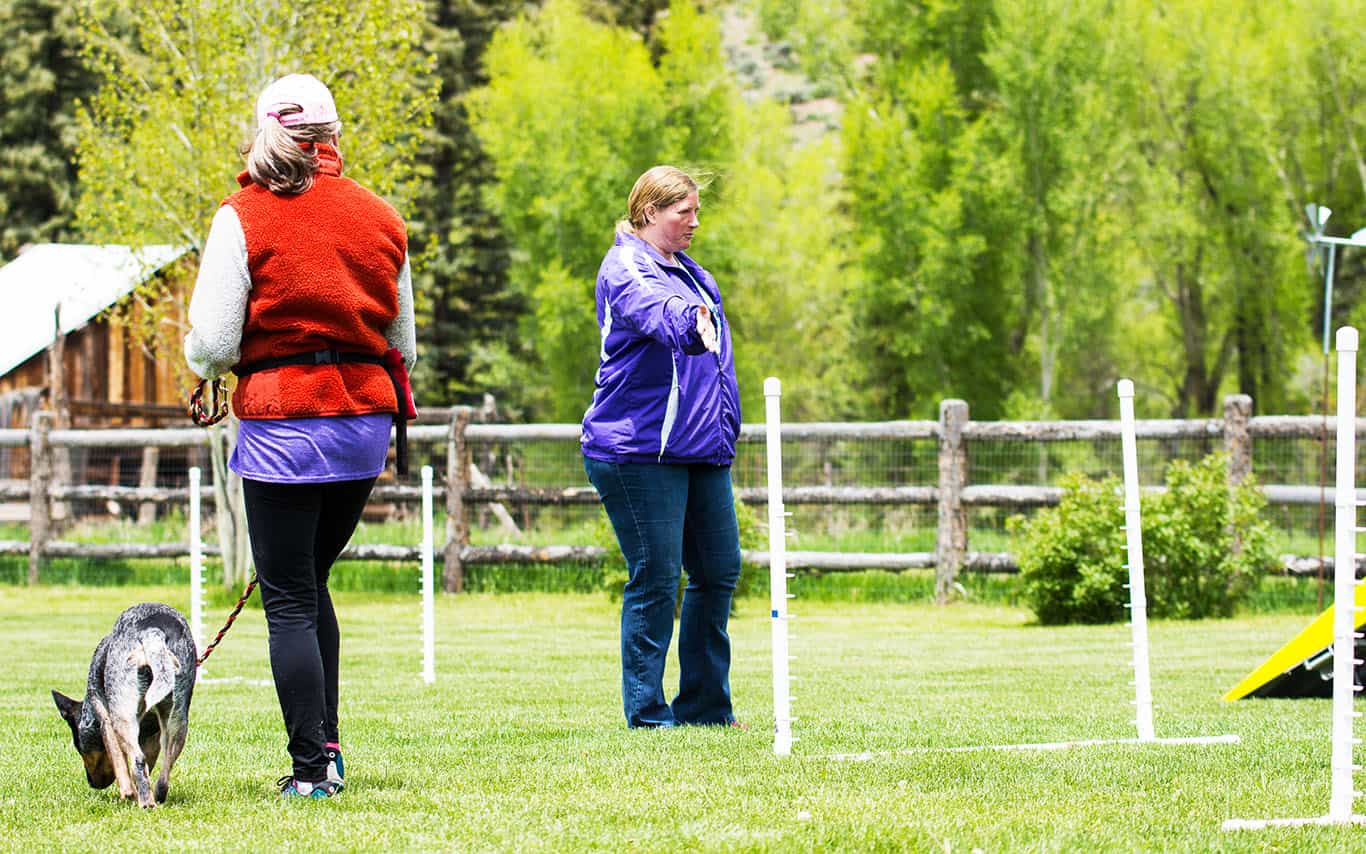
My heart hurt for them. I told them they should never feel that way after a seminar, and I was sorry they had that experience.
The second one cut in. “You NEVER make us feel like that.”
I told her I was glad, and I was, but I was also furiously angry. This instructor prided herself on using positive methods to train dogs, but she had forgotten one important thing. People need positive reinforcement too.
I started to write this article from an instructor’s viewpoint, but I think it is even more valuable from the student’s perspective. So here’s how to decide if you should attend a seminar or not.
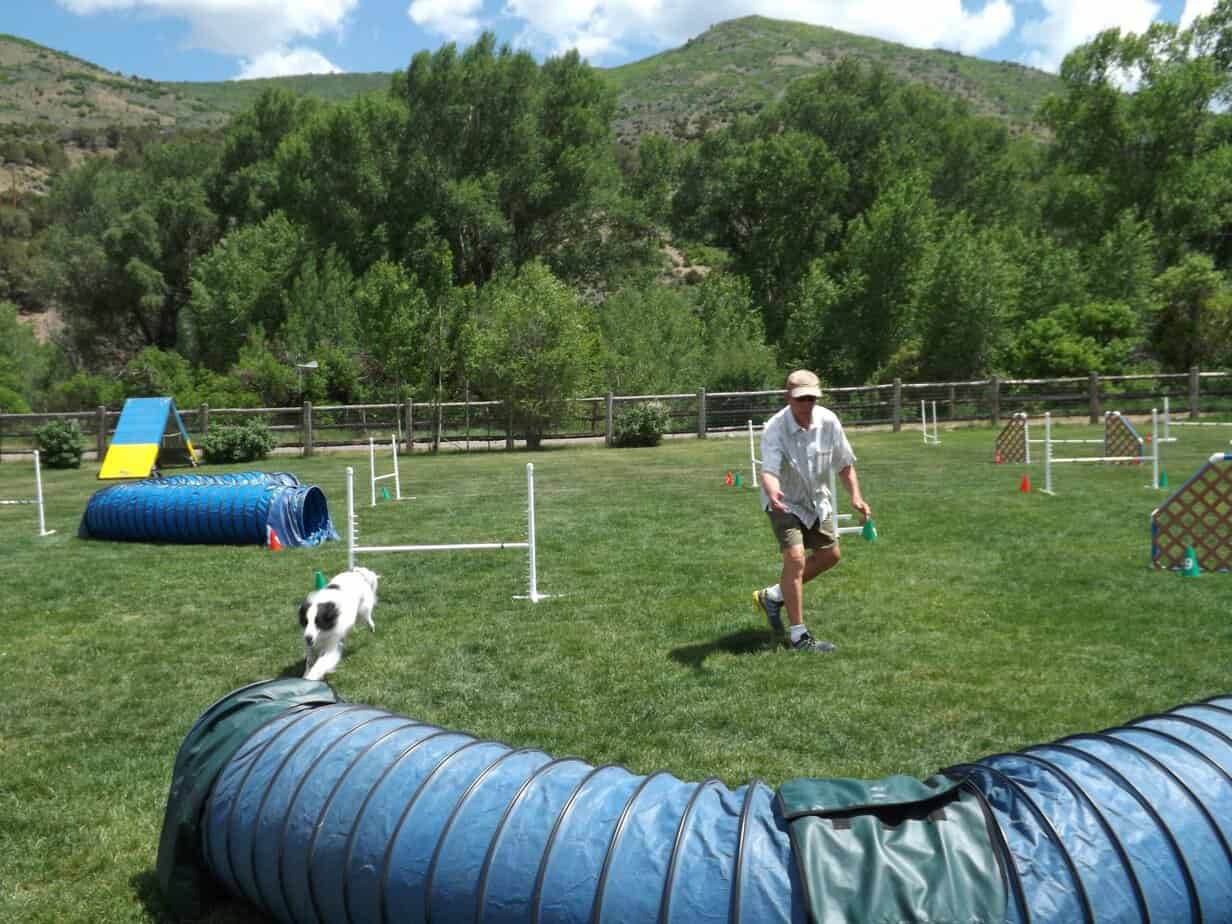
Look for these qualities in the instructor:
They Meet Students Where They’re At
We can’t all be 25 years old and in great physical shape. Everyone doesn’t own (or want to own) a border collie, and not every student will have trained for the past 5 years. Look for an instructor who understands that teams are different, with different goals, needs, and experience. A good instructor will be able to adjust the exercises and instruction level to include all of the teams who are at the seminar.
They Understand and Accept the Limitations of the Team
An instructor’s job is to push a team to expand their current abilities, but do it within their physical, mental, or emotional capabilities. This goes along with meeting students where they’re at. Instructors shouldn’t be telling someone to run faster if they aren’t physically capable of doing so. They should assess the team’s current skills and push them farther without overwhelming them.
They Don’t Denigrate Other Venues
We all have our favorite venues, and others where we don’t or won’t play. Regardless of the instructor’s choice, they should respect yours. Each venue offers a different type of challenge for agility teams. If the instructor has a reputation for bashing other venues, it shows that they are close-minded and don’t appreciate the diversity of opportunities we have.
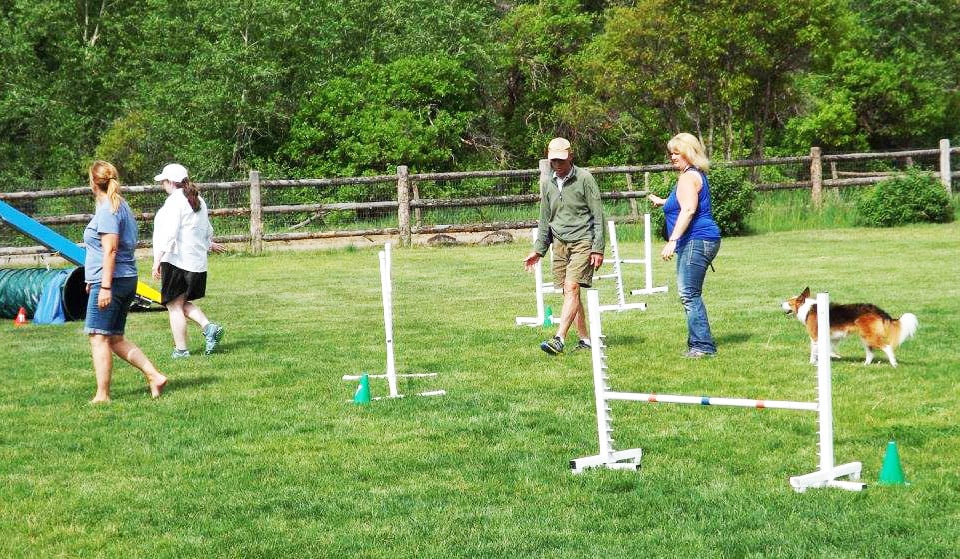
They’re Patient and Kind
Ask a past seminar participant how they felt after the seminar. Seminars should leave students excited about their new knowledge, eager to work on the exercises they learned, and encouraged about the future of their team. They shouldn’t feel rushed, embarrassed, or “less than” the other teams. They should leave feeling better than they did when they started, not worse.
They Have More Than One Way to Teach Things
As agility has evolved into a more mentally and physically demanding sport, the people and dog breeds participating have moved closer to the standard “fast and fit handler” and “fast herding-type dog”. Unfortunately, the movement has created some instructors who don’t know what to do with a terrier, or a sight hound, or a toy dog. The reality is that there are venues for all types of teams to play in, and an instructor should be able to find motivation and teaching methods for any breed type. Handlers are different too, with various learning styles. Instructors should have multiple ways to explain things to cater to different learning preferences.
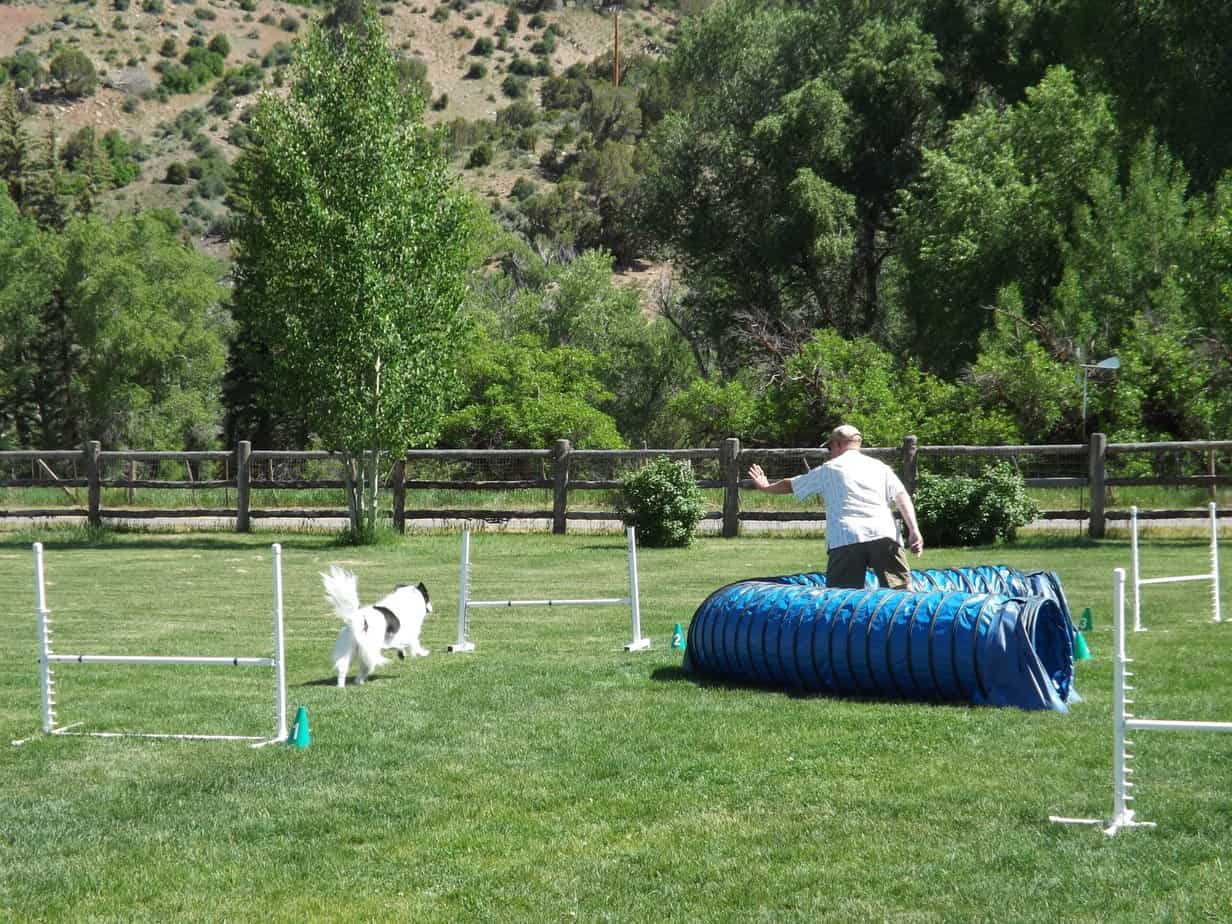
They’re Adaptable
Instructors go into a seminar with a lesson plan and goals. Sometimes though, the students are not capable of performing the planned exercises. While good seminar descriptions and pre-requisites should ensure that the seminar is the right fit, things don’t always go as planned. I’ve had distance seminars where the students were all at a lower experience level than I expected. We ended up shifting part of the conversation to basics like start line stays, contact methods, or behavioral issues instead of sticking entirely to distance training. Instructors should have enough experience to “reset on the fly” if all of the students aren’t quite ready for the topic at hand.
Their Goal is to Serve the Students, Not Their Ego
Look for an instructor that measures success by the number of teams she has helped rather than how much money she makes or how many seminars she has scheduled. The goal of a true teacher (of any topic) is to share knowledge with the students well enough that they surpass her.
They are Knowledgeable AND Know How to Teach
Many people have knowledge about or are successful at agility. Fewer understand how to share that knowledge in a way that is understandable, productive, and kind. Instructors don’t have to have a background in instructional design (although believe me, it helps!), but they should have been mentored by someone, studied at least some adult learning theory, and created teaching materials with the student in mind. They should have a group of past students who have reached the level of success you are looking for.
They have Referrals and References
The best way to know if an instructor is a good choice is to ask their students. In the real world, there are always going to be differences of opinion, or people who just don’t mesh, but the vast majority of past students should have positive things to say about their seminar experience. The agility community is fairly small. If you can’t find someone you know who has attended a seminar, look online for reviews, or ask around in a group (with instructions to DM the answers). Find out if the students were happy with the seminar before you sign up.
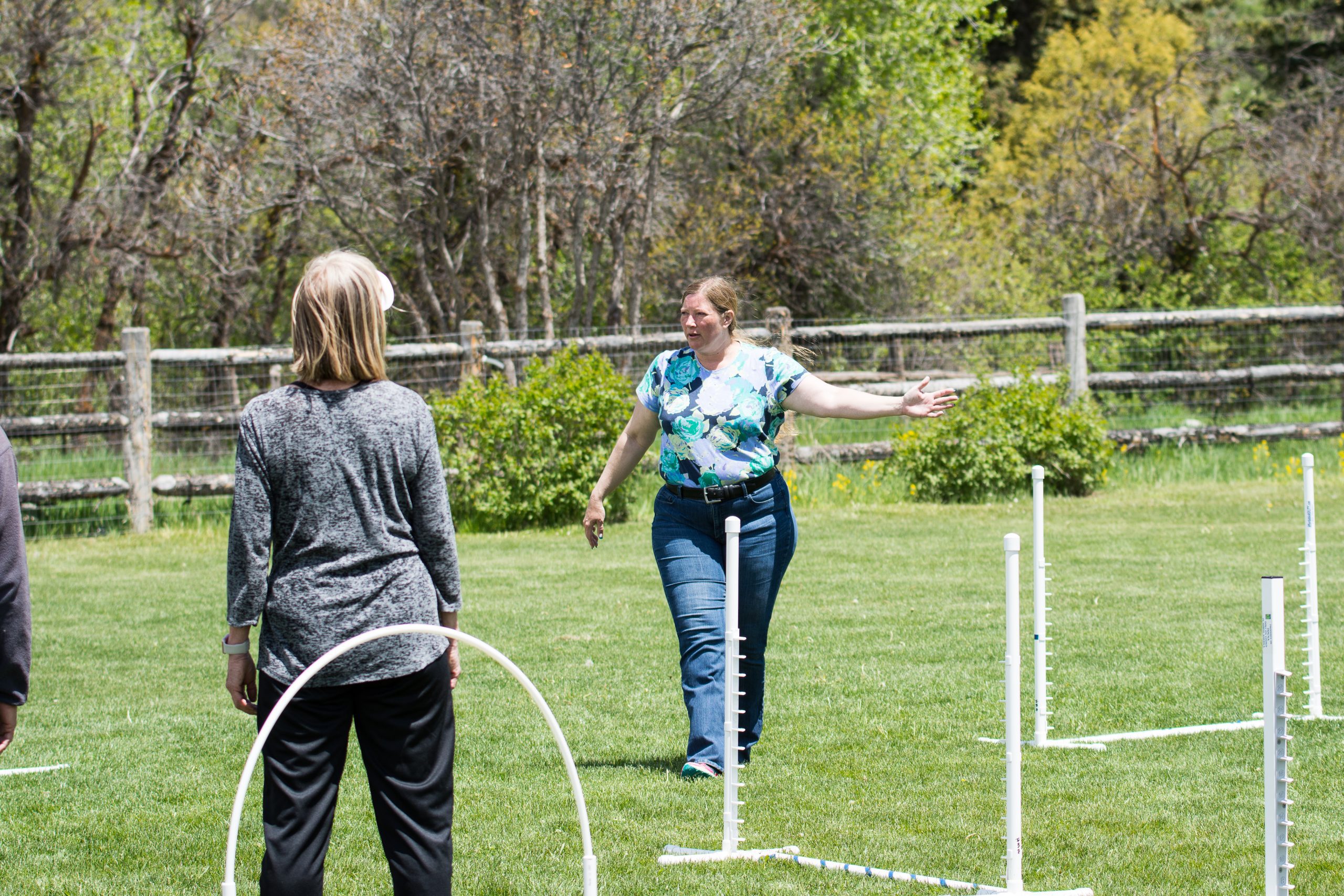
Today’s Tip
Do your homework before signing up for a seminar with someone you don’t know. Look at the criteria above and determine if the instructor is the right fit for you.
You Might Also Like…
Five Ways to Crush It at Your Next Dog Agility Seminar
Going to a dog agility training seminar? Check out these five tips to maximize your return on investment!
Read This Before Deciding on Your Agility Dog’s Contact Performance
Which contact performance, running or stopped, is right for your team? The answer might surprise you.
Is Your Agility Dog a Pinto or a Ferrari?
If you’ve moved up from a slow or moderately-fast agility dog to a speed racer, here’s some advice to make your life easier.
Get tips, stories, discounts, and early notification of events and new courses delivered straight to your inbox! Join the community!

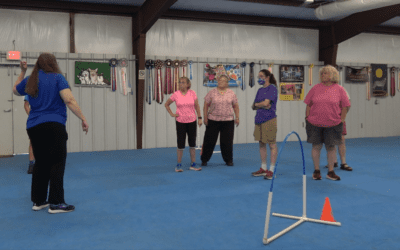
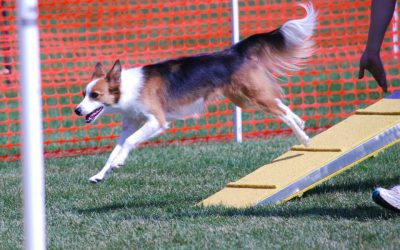
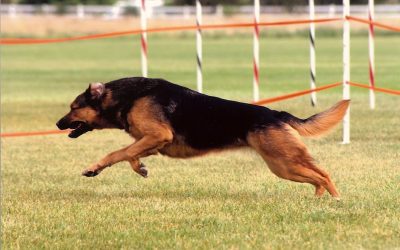
0 Comments